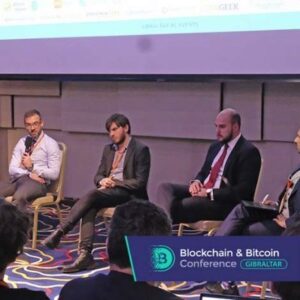Venture capitalists claim that gamers dislike NFTs because they are not compatible with the way game publishers have approached them. According to Matthew Ball, author and venture capitalist, NFTs offer the best technical solution to a more open metaverse.
Following the launch of his book “The Metaverse” Ball spoke to Decrypt about his thoughts about the metaverse and who will be its rulers, as well as whether cryptocurrencies might play a role. He also discussed how NFTs, which are unique blockchain tokens that identify asset ownership, could help solve the biggest problem.
Ball is an ex-executive at Amazon Studios. Mark Zuckerberg, Tim Sweeney from Epic Games, and Brian Armstrong of Coinbase have regarded as a key think leader in all things metaverse. He explained to Decrypt that the metaverse is at its core a “parallel Virtual Plane of Existence.”
He believes we are still at the very beginning stages of creating and defining a metaverse. The most important players in that world will be people we have never met. It won’t be meta or Twitter or crypto-focused brands such as The Sandbox and Decentraland who will rule the virtual realm.
Companies that are not yet in existence or “overlooked” will be the metaverse’s biggest hitters.
He said that he hoped we didn’t know these companies, pointing out how every major technological shift has brought new and unheard-of brands.
Ball believes there is a place for cryptocurrencies in metaverse environments. However, he thinks that the public has not been adequately educated. This lack of education has created stigma and confusion that has ultimately led to a lack of adoption.
Ball stated that crypto is not a well-designed ecosystem.
He suggested that Blockchain technology might be crucial for technical powering a metaverse better for individuals than corporations. Blockchain computing power is distributed across many computers worldwide, so a blockchain-based metaverse would give users more power and less power to big tech companies. This would allow individuals to “fight against trillion-dollar balance sheet.”
The metaverse, in its current form, overlaps with the worlds of video games. Users can engage in virtual environments and obtain virtual items. What do gamers really want? And why does NFTs seem so hateful to so many?
“Gamers long desired interoperability and true ownership of their virtual goods. “The problem is that no one can predict the systems they will use,” Ball stated to Decrypt.
Ball said that this desire for interoperability is in conflict with technocratic business models. This creates a “reverse egg and chicken” situation where no company wants to build the infrastructure for an interoperable metaverse, knowing that its competition will not want it.
Ball suggested that companies could make a profit by adding platform transfer fees to their interoperability.
However, interoperability remains important and he said that it is already present in the global economy. Although there is some resistance right now to interoperability, users want solutions in the free marketplace.
What are the solutions? NFTs could enable interoperability as well as digital asset ownership.
Ball stated that NFTs have “clearly value”, and added that NFTs are a technology that can scale with a growing universe. NFTs are also the most “viable” solution for virtual goods we’ve ever seen.
He stressed that digital and virtual collectibles have been around for decades before NFTs and blockchains. So the real question is whether or not collectibles will be able to benefit from decentralization.
Ball believes that NFTs are valuable, but they have not been fully understood by the public.
Ball acknowledged that many gamers have resentment towards NFTs and said, “Gamers are overlooked for decades.” They feel marginalized and disrespected and are used to micro-transactions ruining their games.
If NFTs are presented as items that can “ruin” gaming, they pose a threat to gamers. Ball stated that publishers could alter their approach to change the sentiment.
He stated that until game publishers put product and experience before press releases and new tech to improve monetization, we won’t be able to resolve that hostility. “And that creates an uneasy circle in which no one wants anyone to make a huge bet on the solution because their peers have already harmed it.”










